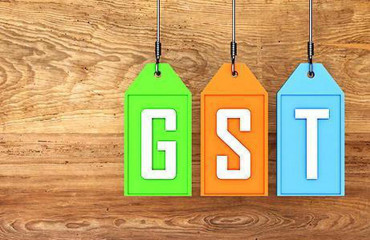
Once upon a time, only story- tellers took it upon themselves to challenge Mark Twain’s quip that death and taxes were the two certainties of life. They came up with zombies, neither dead nor alive. Policymakers might be relatively new to the task, but did not take long to sap the certainty of taxation.
Once upon a time, only story- tellers took it upon themselves to challenge Mark Twain's quip that death and taxes were the two certainties of life. They came up with zombies, neither dead nor alive. Policymakers might be relatively new to the task, but did not take long to sap the certainty of taxation.
Among other devices, they invented the oddity of either-or gateways to comply with the law. In India, of course, the stated purpose is to offer taxpayers choice. This has a certain ring of liberty to it, the kind that consumers learnt to relish after Indian markets were liberated from the Licence Raj.
Paying taxes, however, is not the same as buying a household durable. Confronted with a liability that differs by which of two options is exercised, taxpayers are easily confounded by the math involved in weighing one versus the other.
Also read: Removing indexation on real estate will benefit almost nobody. Here's proof.
The ground for forked taxes was laid more than half a decade ago, sprung on us, ironically, by that great simplifier of indirect levies: the goods and services tax (GST). Take the case of pre-built homes that don't count as 'affordable' in the taxman's lexicon: larger than 646-sq-ft in carpet area, i.e., and priced above ₹45 lakh.
Before 1 April 2019, their sales were charged GST at a rate of 12% with the burden lowered by input tax credit (ITC) for levies on inputs. In response to a plea that much of what went into flats was sourced from the informal sector, with no trail of tax bills for respite, that rate was slashed to 5%, but without any ITC granted.
Apart from cost confusion among builders with partly built residential projects, which sell by and by, the upshot in some cases was differing prices of identical flats within the same housing complex. Such an uneven pitch can tempt a googly, and India's pre-covid budget delivered one soon for a far larger group: Assessees of income tax.
We could either go by the old tax regime, with its rates rising in slabs from 5% to 30% on earnings after claiming tax relief for a clutch of investments, insurance premiums, housing outflows, etc, or forgo deductions to opt for a simplified new regime with lower slab charges.
Also read: The budget served India's self-proclaimed middle class a reality check
For folks uneasy about making annual allotments of money just for tax savings, this was a bold display of fiscal justice. Many others, though, got caught between the two options, unsure which works out more favourably.
If the privilege that lets salaried earners switch back and forth hasn't eased the dilemma, nor has the low interest tax-consultants apparently have in freeing clients of complexity.
Authorities can hardly profess surprise that some taxpayers got pushed to the end of their wits. Any choice (barring a Hobson's) constitutes a 'Pareto' gain over none at all, since it favours at least somebody without making anyone else worse off.
This theory is behind last week's bifurcation of capital-gains tax on secondary sales of long-held homes into a choice of paying either 20% of one's gains with 'indexation' or 12.5% without using this deflator to lessen the effect of inflation.
This reprieve spans more than two decades, but it's not as if the 'money illusion' of a weakening currency can't be seen through for homes held for fewer years. Post-budget home buyers will get no choice, but for many homeowners, it's yet another puzzle to reckon with. 'Positive for AI,' sums up the snarky reviews.
Also read: Is new income tax regime on way to make the old tax regime irrelevant? What ITR filing 2024 data reveals
Mark Twain was either impressed or amused by the multiplicity of everything in India. But when it comes to tax liabilities, it's far from costless. Either-or taxation mustn't multiply, lest we go down a slippery slope to complexity.
